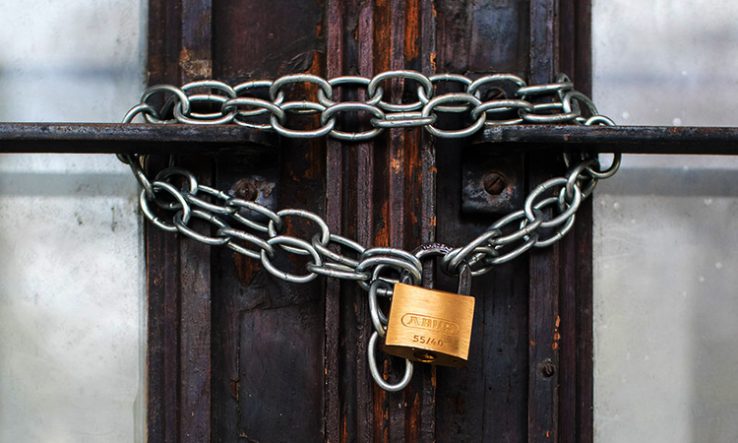
Image: Ivan Radic [CC BY 2.0], via Flickr
Vulnerable students may be first to return in January, France’s Council of State rules
Hopes that universities in France will reopen next month, along with bars and restaurants, have been dealt a blow by the Council of State, the highest administrative court.
On 10 December, the court rejected a petition made by academics from the University of Paris 1 Panthéon-Sorbonne, asking for higher education institutions to hold on-campus events again in January. The move follows nationwide calls from the Conference of University Presidents, trade unions and some universities, pleading with the government for a return to face-to-face teaching.
Led by law professor Paul Cassia, the 77 petitioners said universities should reopen to avoid students suffering “psychological disasters”.
Explaining its decision, the council said it would not support a reopening because “the circulation of the virus in metropolitan France remains at a high level, despite the beginning of a decline in the number of new positive cases”. The council also noted that restrictions on higher education activities were implemented to deal with the “rapid worsening” of the pandemic.
Speaking to Research Professional News, Cassia said that the preservation of public health should not render all other concerns redundant. “Health concerns have [here] overridden other fundamental rights,” he said. “The Council of State decision will have negative consequences in terms of access to education.”
Universities, including Paris-Saclay, have requested that the government allow for reopening as soon as possible.
Last week, French prime minister Jean Castex asked minister for higher education and research Frédérique Vidal to consult with universities about resuming face-to-face teaching. The research ministry has said that, following the consultations, heads of higher education institutions will implement new guidelines “in order to allow for a gradual resumption in conjunction with staff and student representatives”.
Local academic rectors, which are appointed by the French government, have also been asked to work with institutions and student representatives to identify problems on the ground.
Lecture theatres across France have been empty since October, in a bid to halt the spread of the coronavirus pandemic. Government plans announced by president Emmanuel Macron on 28 October, and later detailed by Castex, ended tentative attempts to restart face-to-face teaching.
As a result, universities are expected to operate mostly remotely until February at the earliest.
Speaking at a press conference on 10 December, Castex admitted that some students were currently “in a very difficult psychological situation”. International students found themselves isolated, he said, which is why a gradual reopening would occur.
Students classified as vulnerable are likely to be allowed to return to campus in early January, “unless there is a terrible epidemic situation”, Castex said. The government will assess the situation on 20 January to consider the full resumption of university teaching.
Most French lockdown restrictions were dropped on 15 December, but some have been kept in place, due to case numbers in France remaining higher than the government had hoped.
Activities now permitted include nursing-home visits and limited international travel. Universities are not alone in remaining shuttered; bars and restaurants will also remain closed until 20 January. Cinemas and skiing facilities had been due to open but will remain closed as well.
An 8pm curfew has been imposed nationwide.